Related Research Articles

The National Center for Biotechnology Information (NCBI) is part of the United States National Library of Medicine (NLM), a branch of the National Institutes of Health (NIH). It is approved and funded by the government of the United States. The NCBI is located in Bethesda, Maryland, and was founded in 1988 through legislation sponsored by US Congressman Claude Pepper.

The European Molecular Biology Laboratory (EMBL) is an intergovernmental organization dedicated to molecular biology research and is supported by 28 member states, one prospect state, and one associate member state. EMBL was created in 1974 and is funded by public research money from its member states. Research at EMBL is conducted by approximately 110 independent research and service groups and teams covering the spectrum of molecular biology and bioinformatics. The list of Groups and Teams at EMBL can be found at www

UniProt is a freely accessible database of protein sequence and functional information, many entries being derived from genome sequencing projects. It contains a large amount of information about the biological function of proteins derived from the research literature. It is maintained by the UniProt consortium, which consists of several European bioinformatics organisations and a foundation from Washington, DC, United States.
The European Bioinformatics Institute (EMBL-EBI) is an intergovernmental organization (IGO) which, as part of the European Molecular Biology Laboratory (EMBL) family, focuses on research and services in bioinformatics. It is located on the Wellcome Genome Campus in Hinxton near Cambridge, and employs over 600 full-time equivalent (FTE) staff. Institute leaders such as Rolf Apweiler, Alex Bateman, Ewan Birney, and Guy Cochrane, an adviser on the National Genomics Data Center Scientific Advisory Board, serve as part of the international research network of the BIG Data Center at the Beijing Institute of Genomics.
The DNA Data Bank of Japan (DDBJ) is a biological database that collects DNA sequences. It is located at the National Institute of Genetics (NIG) in the Shizuoka prefecture of Japan. It is also a member of the International Nucleotide Sequence Database Collaboration or INSDC. It exchanges its data with European Molecular Biology Laboratory at the European Bioinformatics Institute and with GenBank at the National Center for Biotechnology Information on a daily basis. Thus these three databanks contain the same data at any given time.
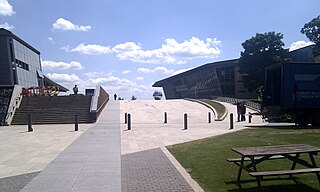
The Wellcome Genome Campus is a scientific research campus built in the grounds of Hinxton Hall, Hinxton in Cambridgeshire, England.

Dame Janet Maureen Thornton, is a senior scientist and director emeritus at the European Bioinformatics Institute (EBI), part of the European Molecular Biology Laboratory (EMBL). She is one of the world's leading researchers in structural bioinformatics, using computational methods to understand protein structure and function. She served as director of the EBI from October 2001 to June 2015, and played a key role in ELIXIR.
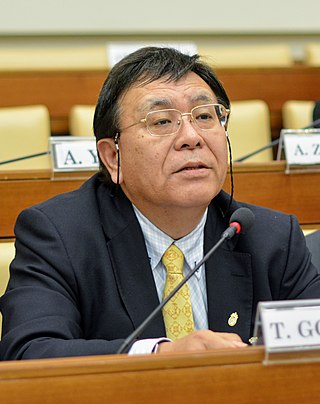
Takashi Gojobori is a Japanese molecular biologist, Vice-Director of the National Institute of Genetics (NIG) and the DNA Data Bank of Japan (DDBJ) at NIG, in Mishima, Japan. Gojobori is a Distinguished Professor at King Abdullah University of Science and Technology (KAUST) in Thuwal, Saudi Arabia. He is a Professor of Bioscience and Acting Director at the Computational Bioscience Research Center at KAUST.

Søren Brunak is a Danish biological and physical scientist working in bioinformatics, systems biology, and medical informatics. He is a professor of Disease Systems Biology at the University of Copenhagen and professor of bioinformatics at the Technical University of Denmark. As Research Director at the Novo Nordisk Foundation Center for Protein Research at the University of Copenhagen Medical School, he leads a research effort where molecular-level systems biology data are combined with phenotypic data from the healthcare sector, such as electronic patient records, registry information, and biobank questionnaires. A major aim is to understand the network biology basis for time-ordered comorbidities and discriminate between treatment-related disease correlations and other comorbidities in disease trajectories. Søren Brunak also holds a position as a Medical Informatics Officer at Rigshospitalet, the Capital Region of Denmark.

Peer Bork is a German bioinformatician. He is Director of the European Molecular Biology Laboratory (EMBL) site in Heidelberg, in south-west Germany.
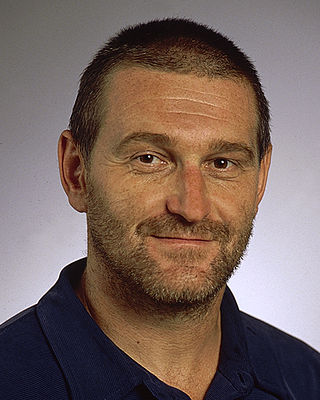
Pavel Arkadevich Pevzner is the Ronald R. Taylor Professor of Computer Science and director of the NIH Center for Computational Mass Spectrometry at University of California, San Diego. He serves on the editorial board of PLoS Computational Biology and he is a member of the Genome Institute of Singapore scientific advisory board.

Rolf Apweiler is a director of European Bioinformatics Institute (EBI) part of the European Molecular Biology Laboratory (EMBL) with Ewan Birney.
Melbourne Bioinformatics is a centre for computational life science expertise. It provides bioinformatics support for all researchers and students in a wide range of projects and services of local and national significance. Researchers can engage with Melbourne Bioinformatics through training and consulting with experts which can lead to project collaborations with academic staff within the University of Melbourne.
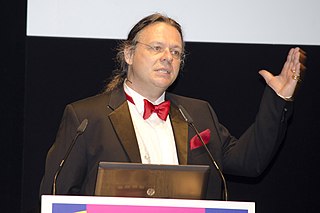
Burkhard Rost is a scientist leading the Department for Computational Biology & Bioinformatics at the Faculty of Informatics of the Technical University of Munich (TUM). Rost chairs the Study Section Bioinformatics Munich involving the TUM and the Ludwig Maximilian University of Munich (LMU) in Munich. From 2007-2014 Rost was President of the International Society for Computational Biology (ISCB).

Alexander George Bateman is a computational biologist and Head of Protein Sequence Resources at the European Bioinformatics Institute (EBI), part of the European Molecular Biology Laboratory (EMBL) in Cambridge, UK. He has led the development of the Pfam biological database and introduced the Rfam database of RNA families. He has also been involved in the use of Wikipedia for community-based annotation of biological databases.

Sarah Amalia Teichmann is a German scientist who is head of cellular genetics at the Wellcome Sanger Institute and a visiting research group leader at the European Bioinformatics Institute (EMBL-EBI). She serves as director of research in the Cavendish Laboratory, at the University of Cambridge and a senior research fellow at Churchill College, Cambridge.

Desmond Gerard Higgins is a Professor of Bioinformatics at University College Dublin, widely known for CLUSTAL, a series of computer programs for performing multiple sequence alignment. According to Nature, Higgins' papers describing CLUSTAL are among the top ten most highly cited scientific papers of all time.
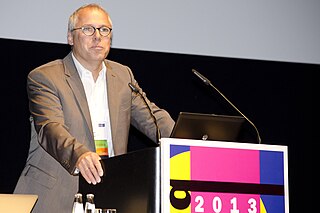
Martin Vingron is an Austrian mathematician working in the fields of bioinformatics and computational biology. Since 2000, he has been Director of the Max Planck Institute for Molecular Genetics.

Professor Bissan Al-Lazikani PhD FRSB MBCS is a data scientist and drug discoverer. She applies computational techniques to help solve critical bottlenecks in cancer drug discovery and development. Since 2021 she has been professor of genomic medicine at The University of Texas MD Anderson Cancer Center.
Susan Jones is a British computational biologist and bioinformatics group leader at the James Hutton Institute. Her work is specially focused on plant pathogen diagnostics, particularly virus diagnostics, using large datasets of RNA-Seq data. She also works on functional genomics, transcription regulation, protein-protein and protein-nucleic-acid interactions.,